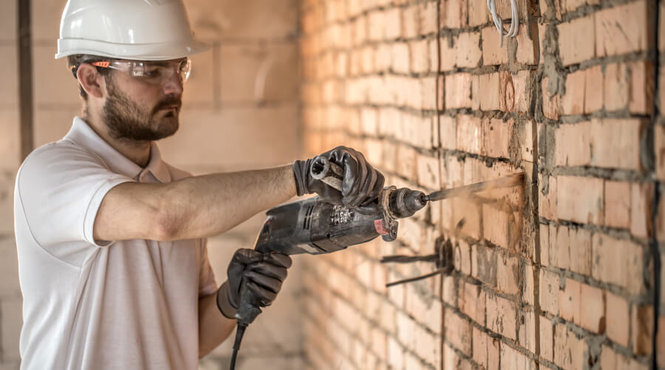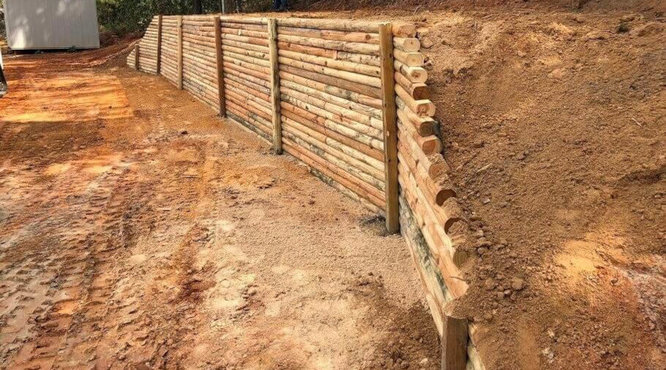An evaporative cooler is an air-cooling machine that uses the natural process of evaporation to cool the temperature of air. Evaporative coolers are also often known as “swamp coolers”.
How do Evaporative Coolers Work?
Evaporative air coolers feature an internal water tank, a water pump, honeycomb-shaped pads and an internal fan. The machine pumps water up from its water tank and over the honeycomb pads, while the internal fan draws warm air into the unit. The air passes through the wet pads and is blown out the front of the machine.
As the warm air passes through the wet pads, moisture naturally evaporates into the air, reducing the temperature of the air. This cooler and more humid air is circulated into the space, providing more comfortable conditions on warm and dry days.
Evaporative coolers are available in a wide range of sizes – from compact units with a 7 litre tank for personal use at home, right up to large industrial air coolers with a 200 litre tank for use in warehouses and factories, at large events and more.
Some evaporative coolers have basic dial controls, whilst others have more advanced digital controls with various settings and a timer. Some evaporative coolers also have extra features like an ice compartment and a UV light for disinfecting the water, to prevent a spread of bacteria and viruses.
Advantages of Evaporative Coolers
Evaporative coolers have some major advantages over air conditioners.
- Simple Design & Operation – with minimal internal components, evaporative coolers are very easy to operate and maintain. Whilst air conditioners have a compressor and use refrigerant gas to cool the air, evaporative coolers rely on much simpler technology.
- Cheap Running Costs – due to the fact that they are much simpler machines, evaporative air coolers are more energy efficient, environmentally friendly and generally much cheaper to run than air con units. Most models only use electricity to run a small water pump and a fan. They are also much cheaper and easier to maintain and repair.
- Outdoor Use – whilst air conditioners can only be used for cooling rooms indoors, evaporative coolers can be used to cool outdoor and semi outdoor areas such as terraces, balconies, patios, beer gardens, events and more.
Disadvantages of Evaporative Coolers
- Performance – Evaporative coolers are not able to lower the air temperature as much as air conditioners. The output air temperature also cannot be controlled in the same way as it can with an air conditioner. The output air temperature depends on the input air temperature and the relative humidity level within the space. Evaporative coolers are most effective in warm and dry climates and less effective in more humid climates.
- Ventilation Required – Evaporative coolers can be used indoors as long as there is adequate ventilation, with open windows and doors. They need to be able to draw in fresh air to work effectively and, in an enclosed indoor space, they would cause a rise in relative humidity which could create an uncomfortable environment. A swamp cooler must not be used in an indoor space with sensitive equipment and materials which could be damaged by a rise in relative humidity levels, such as server rooms.
- Water Use – These machines need to be topped up with water to continue working effectively. Though most commercial & industrial units usually have a a connection point for a hose which allows continuous water supply.
Where Can You use Evaporative Air Coolers?
Evaporative coolers are best used in well ventilated spaces, such as workshops, garages and warehouses with large open doors, or in bar and restaurant terraces.
This is due to the fact that evaporative coolers add moisture to the air. So if they are used in enclosed, poorly ventilated spaces, they can cause condensation to build-up inside the space. Therefore evaporative coolers are not suitable for enclosed rooms in the home, offices and server rooms.
For the most effective cooling performance, position the unit in front of a partially opened doorway or window with the conditioned air directed into the room. Have a door or window partly opened away from the air cooler to create a 'flow through' for a better cooling effect.
What is the Difference Between Evaporative Coolers and Air Conditioners?
The key difference between evaporative air coolers and air conditioners is that evaporative coolers use water and the process of evaporation to cool the air, whilst air conditioners use refrigerant gas.
Evaporative coolers add moisture to the air and air conditioners remove moisture from the air.
Evaporative air coolers are much cheaper to run than air conditioners, however air conditioners provide the best option for cooling enclosed spaces such rooms in homes and offices, server rooms and other areas with equipment and materials that could be damaged by a rise in humidity.






